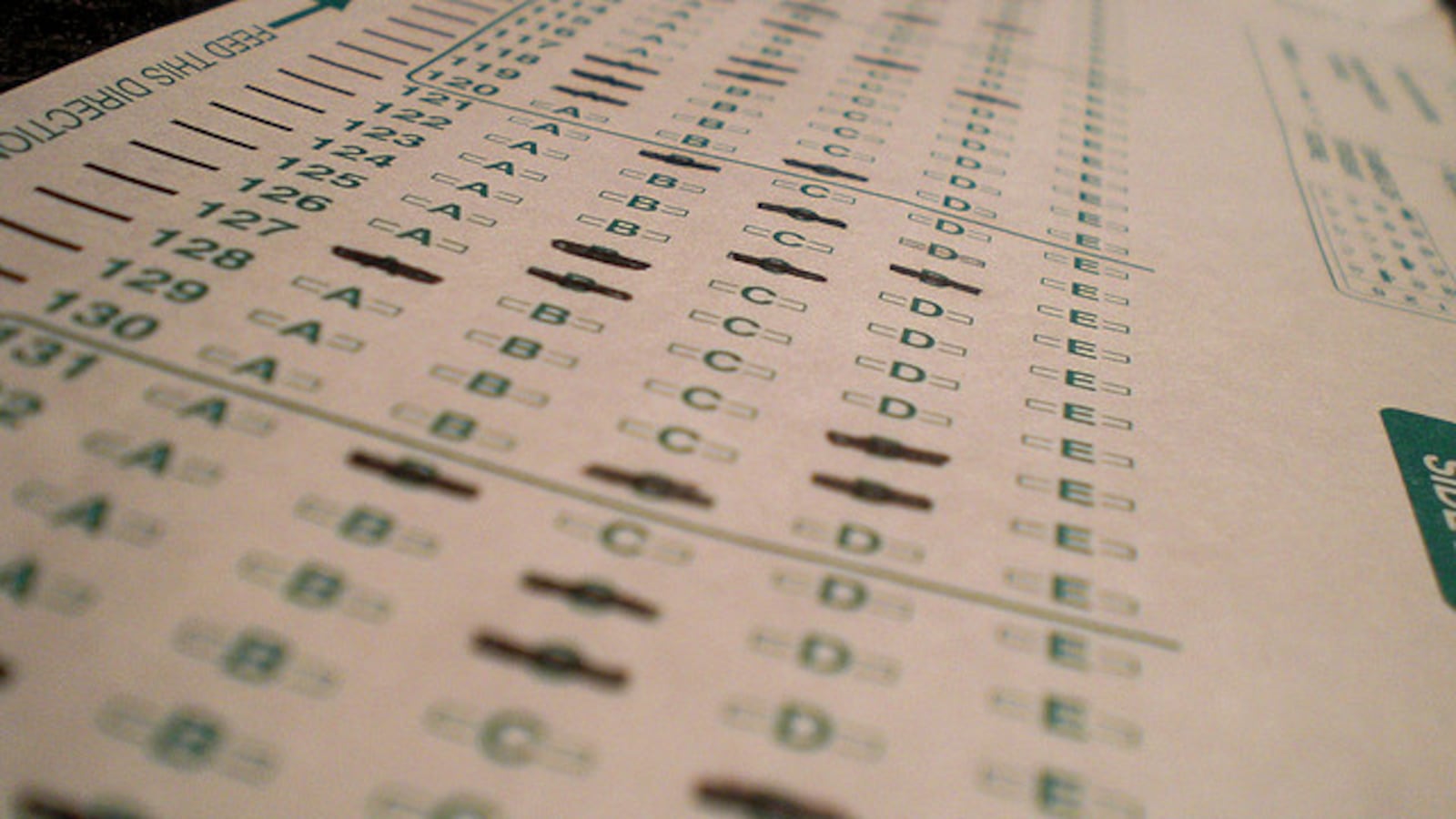When the Detroit Public Schools officially became a new school district this summer, it left behind years of accumulated debt.
It may also want to leave behind its test scores.
The results from the 2016 M-STEP, released Tuesday, offer little good news for Michigan’s largest school district.
The percentage of students in grades 3-8 who tested proficient in math dropped from 7.2 percent in 2015 to 6 percent this year. Statewide, math scores barely changed — around 37 percent of students were proficient last year and this year.
It was a similar story in reading, where Detroit Public Schools saw scores drop in every grade except fifth and eighth, where scores were essentially flat. While 13.3 percent of its students in grades 3-8 tested proficient in 2015, that number dropped to 12 percent this year.
Across the state, reading scores saw a smaller decline, with 47.8 percent of students scoring proficient in 2015 and 47.3 percent scoring proficient this year.
The district also struggled at the high school level. Just 14.6 percent of DPS 11th graders earned a proficient score on the math section of SAT compared with 36.9 percent statewide. It was the first year that the SAT was used to assess Michigan 11th graders so the score can’t be compared to prior years but the district saw 11th grade scores drop from 15.6 percent to 12.2 percent on the M-STEP’s social studies section. Scores on the science section were flat.
(See how your school or district performed on the M-STEP or the SAT here).
The bad news comes as low-performing schools across the state face a heightened threat of closure.
The state School Reform Office has said it plans to shutter schools that score in the bottom 5 percent on the state’s annual top-to-bottom ranking for three years in a row using 2014, 2015, and 2016 rankings.
The data released Tuesday still need to be crunched by state officials, who plan to release the top-to-bottom list for 2016 later this year.
How the test scores should be used is the subject of dispute between two state agencies.
The agency that released the scores Tuesday — the Michigan Department of Education — says this data is for “information only.” Last year, the department told schools they would not be held accountable for scores on the first years of the new M-STEP, which is a more rigorous exam that replaced the old MEAP test. It was administered for the first time in 2015.
While discussing the scores Tuesday, a state education department official did not mention that the results could be used to close schools.
“Remember, all students come to school equipped differently in terms of readiness to learn, ability to learn on any given day, and so tests are only one part of our assessment of how a school is performing and what a school is doing to meet the needs of that student,” Deputy Superintendent Venessa Keesler said.
“All of the schools in our state, our nation, need to be in a state of continual improvement to get better. I believe they are. But it’s not a linear process, for sure.”
But the School Reform Office says otherwise. That office is no longer a part of the Department of Education and is no longer overseen by the state school board. Gov. Rick Snyder took over the department last year in an effort to ramp up pressure on low-performing schools.
It’s the Reform Office that plans to close down schools with multiple years of low test scores. Schools that were in the bottom 5 percent on the 2014 top-to-bottom list and are on the 2015 and 2016 lists could get letters instructing them to close their doors next June.
(The 2015 rankings have not yet been released. The School Reform Office plans to release a list of schools whose scores landed them a place at the bottom of the 2015 ranking as soon as this week.)
Detroit Public Schools may plan to argue that the fact that it is now a new district, officially called the Detroit Public Schools Community District, means it shouldn’t be held accountable for the old district’s scores.
The 15 Detroit schools in the Education Achievement Authority, a state-run recovery district, may also have a legal argument they could use to stay open because of their unusual position.
But the EAA can point to some improvement on this year’s exams. In reading, the percent of students who were proficient in grades 3-8 went from 5.3 percent last year to 6.9 percent this year.

